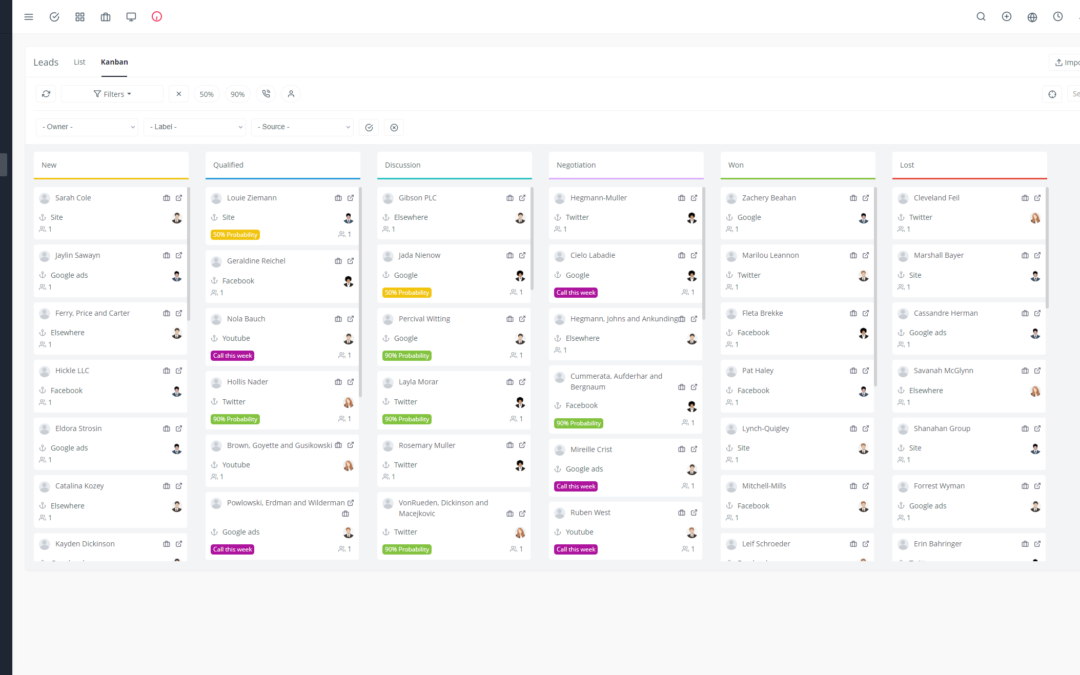Yoneos Cloud is a powerful and flexible platform that offers a variety of deployment options to meet the unique needs of your business. Whether you’re a small startup or a large enterprise, there’s a deployment solution tailored to your requirements.
Discover the different options and their advantages and disadvantages to choose the one that best suits you:
1. Public Cloud Deployment ☁️
Public Cloud is a popular option for businesses of all sizes. It provides access to shared computing resources through a network of servers managed by a third-party provider.
Public Cloud Providers:
AWS (Amazon Web Services): The market leader, offering a wide range of services and high reliability.
Azure (Microsoft Azure): Known for its seamless integration with Microsoft products and excellent security.
Google Cloud Platform: Provides innovative solutions and high performance, especially for AI and Machine Learning.
Advantages of Public Cloud:
Lower Costs: Pay only for the resources you use, with no significant upfront investment.
Scalability: Easily adjust your resources on demand, based on your business needs.
High Availability: Enjoy increased reliability thanks to the provider’s infrastructure redundancy.
Ease of Management: The provider handles server management, networking, and security.
Disadvantages of Public Cloud:
Vendor Dependence: You rely on the provider for the availability and security of your data.
Security: Robust security measures are needed to ensure the protection of your sensitive data.
Limited Control: You have less control over the infrastructure and configuration settings.
2. Private Cloud Deployment 🔒
Private Cloud involves creating a dedicated cloud infrastructure for your business. You own and manage your own servers, networks, and software in a private data center or on-premises.
Advantages of Private Cloud:
Full Control: You have complete control over the infrastructure and data.
Enhanced Security: Customized security measures can be implemented to protect your sensitive data.
Compliance: Adapt the infrastructure to your industry’s specific compliance requirements.
Disadvantages of Private Cloud:
High Costs: Significant upfront investment and high maintenance costs.
Complexity: Managing and maintaining the infrastructure can be complex.
Scalability: Scalability can be slower and more expensive than Public Cloud.
3. Hybrid Cloud Deployment 🤝
Hybrid Cloud combines the benefits of Public Cloud and Private Cloud by using both types of infrastructures. This allows you to choose the most appropriate solutions for your different needs.
Advantages of Hybrid Cloud:
Flexibility: Combine the advantages of Public Cloud and Private Cloud.
Optimized Costs: Reduce costs by using Public Cloud resources for less sensitive applications.
Balance Control and Scalability: Enjoy more control over sensitive data while benefiting from Public Cloud scalability.
Disadvantages of Hybrid Cloud:
Complexity: Managing both types of infrastructures can be more complex.
Management: Requires coordination between teams managing Public Cloud and Private Cloud.
Security: Security must be consistently applied across both types of environments.
4. On-Premise Deployment 🏢
On-Premise Deployment involves installing and maintaining the infrastructure within your own facilities. You own and manage all components of the infrastructure.
Advantages of On-Premise Deployment:
Full Control: You have complete control over the infrastructure, data, and security settings.
Compliance: Meet your industry’s compliance requirements.
Performance: High performance due to a direct connection to the infrastructure.
Disadvantages of On-Premise Deployment:
High Costs: Significant upfront investment and high maintenance costs.
Complexity: Managing and maintaining the infrastructure can be complex.
Scalability: Scalability can be slow and expensive.
Choosing the Right Deployment Option: 🎯
To help you choose the best deployment option, consider these factors:
Cost: Analyze the initial costs, maintenance costs, and operational costs for each option.
Security: Assess the security measures and compliance policies of each option.
Performance: Determine the performance requirements of your application and the capabilities of each option.
Scalability: Choose an option that allows you to easily adapt your resources to your company’s future needs.
Management:* Determine the level of management complexity for each option and the resources required.
By considering these factors and carefully examining your needs, you can choose the Yoneos Cloud deployment option that will enable you to achieve your business goals and maximize your return on investment. 🚀

